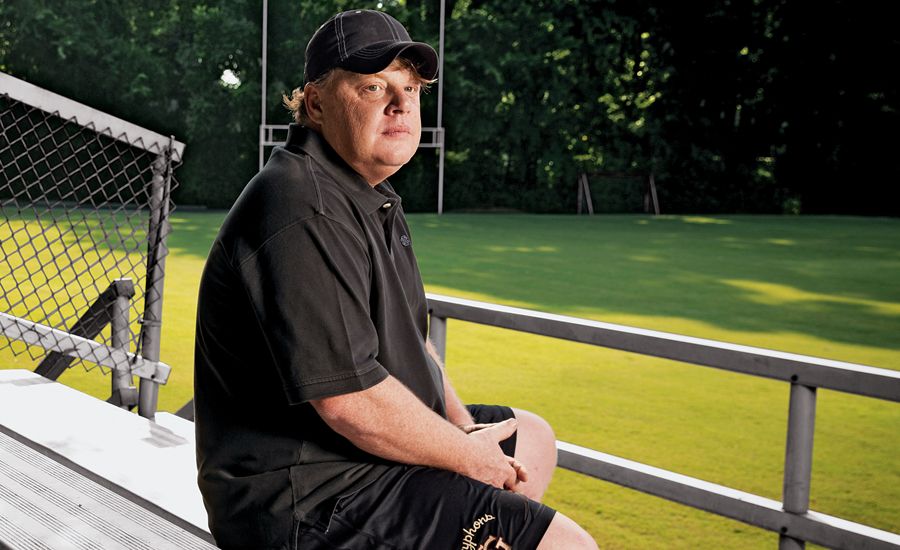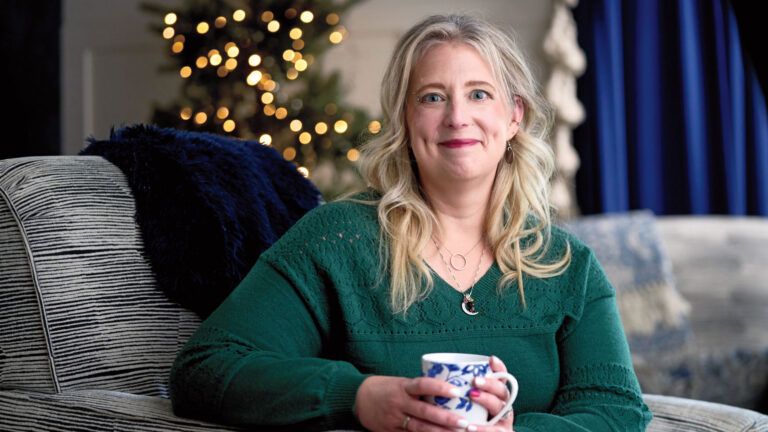I’m a football coach and a business owner. I think about leadership a lot. I try to bring out the best in my employees and the young men I coach.
Maybe you’ve seen me at work. A movie about my team, Undefeated, won an Academy Award for best documentary in 2012. Let me tell you, that award wasn’t because of me. It was because of the Manassas High School Tigers. Those young men showed the world their true character.
I started my lumber business, Classic American Hardwoods, from scratch and now 120 people work for me.
You might think my story is all about Bill Courtney, business whiz, taking his can-do know-how to a struggling football team and leading a bunch of directionless boys to their first winning season in years. Well, you’d be wrong.
If there’s one thing my life in business and coaching has taught me, it’s that success is not about me. Leadership is not about giving orders. And character is not the same as self-reliance.
How do I know? Because the year before that documentary came out, I was going through my own crisis of character. I had no problem encouraging my employees and the boys on my team to do their best and pick themselves up when they fell.
But what would I do when an emotional wound from deep in my past literally showed up on my doorstep one day? I had to let go of a burden I’d been carrying since childhood. I had to follow God’s lead and do one of the hardest things I’ve ever done. I wasn’t sure I could do it.
I grew up in Memphis. I love this city, but I did not love my childhood. When I was four, my dad left us. My mom did her best to raise me right, juggling work and parenthood.
She drove me to sports practices and games, disciplined me when I needed it and always made sure I knew she loved me. She taught me lessons about relationships that still stick with me after 22 years of marriage to my beloved wife, Lisa.
Lisa and I have four kids. I guess I’ve worked so hard at being a good husband and father because I didn’t want to end up like my dad.
Every now and then he’d show up out of the blue and take me to watch a movie or shoot hoops. But then he’d disappear again. He never called. If I wanted to talk to him, I had to pick up the phone.
Dad remarried a woman with a son named Chip, and after that I almost never saw him.
It was bad enough not having a father to teach me how to shave, or tie a tie, or stick up for myself. When I realized Chip had basically replaced me in Dad’s heart, I felt so rejected. Chip had red hair like mine, and that made it even worse.
One late afternoon in ninth grade, our JV football team beat our rival in a hard-fought game. I scored the winning touchdown on a 40-yard run. I grabbed my equipment and headed for the field house, almost floating on air.
Then I saw my teammates walk off the field with their dads carrying their helmets, which gleamed under the lights. That brought me crashing down to earth. What was wrong with me that my dad wasn’t there? Why didn’t he love me?
I dealt with my hurt by overachieving. I won an academic scholarship to the University of Mississippi and worked three jobs to put myself through school. After graduating I married Lisa and worked my way up to vice president at a local lumber mill.
Then I took a big risk and started my own company with two others from the mill. Though the September 11 terrorist attacks happened days after we opened, we managed to make the company a success.
In 2003 one of my employees asked if I’d put in a few weeks as a volunteer football coach at Manassas High in inner-city North Memphis. He’d been volunteering there.
“The guys look like they can play,” he said. “They just need some guidance. Mentors.” There were sure to be boys on that team whose dads had walked out on them. I jumped at the chance to be a mentor, maybe even a surrogate father for them.
I thought I’d work with the kids just for spring practice. Two weeks turned into six and a half years. The Tigers went from winning only seven games in the decade before I arrived to winning half their regular season games and making the playoffs in 2003 for the first time in school history.
I believe players win football games. Coaches win players. I proved my commitment to those boys by getting to know each one of them personally. I visited them at home if they skipped practice. I helped them land college scholarships.
They played better football not because I’m such a genius at the X’s and O’s but because they trusted me. I helped them trust themselves.
I came to love those boys. I saw myself in them. The more they grew as young men, the more I found myself wishing I’d had that same kind of mentorship.
I kept thinking about my dad. And that made me angry. Every Father’s Day and Christmas I became withdrawn and irritable. Lisa bore the brunt of it. I tried to stuff my feelings down. They didn’t stay down.
The breaking point came when Lisa ended up becoming friends with none other than the wife of Chip, my dad’s stepson. Really? Of all the people to come back into my life, it had to be him? By then I hadn’t seen my dad in 22 years.
Every night I asked God for forgiveness for all the dumb things I’d done that day—cussing in front of my players, some petty argument at work or with Lisa. And I prayed about my dad, all the anger I felt.
God never seemed to answer those prayers directly. But each day I found myself thinking more about Lisa and the kids, how much I loved them. Was God telling me not to worry about my dad because I had a family of my own now? That wasn’t particularly helpful.
“It’s interesting about Chip’s wife,” Lisa said one day. “She had a rough relationship with her dad too.” She gave me a long look. It was fall, midway between Father’s Day and Christmas.
“She said she could help me set up a meeting with your dad,” Lisa continued.
“Really,” I said.
“Yes, Billy, really. We both know how much he weighs on you, even if you try not to show it. Maybe seeing him would help.”
I was about to reply that one awkward meeting could not possibly heal decades of pain. But all of a sudden I remembered my prayers. And in that instant I realized what God was trying to tell me.
My love for my family—that’s exactly how God loved me. He loved me so much he forgave me when I let him down. Just like I did with Lisa and the kids. Heck, just like I did with my employees or with the boys on my team.
God was telling me—when you get down to it, Jesus showed the whole world 2,000 years ago—that forgiveness is at the heart of his love. Which meant it had to be at the heart of my love too. Not just when it was easy, like at home. But when it was hard. Like with my dad.
If I wanted to free myself from anger and hurt, I had to meet my dad and tell him to his face I forgave him.
But did I forgive him? There was only one way to find out.
Lisa made the arrangements and a few weeks later I was standing in my living room nervously waiting for Dad to arrive.
The doorbell rang and there he was, on my porch. It was a shock to see him in his sixties, with white hair. We sat down in the living room. Right away he started up with some half-baked excuses. I cut him off.
“I want you to answer one question,” I said. “Why did you never call me?”
More excuses. Suddenly, he looked at me with an anguished expression. “Oh, Bill,” he said. “I’m so sorry. I’m so very sorry. I’ve missed out on so much.”
My reply seemed to come from someplace deep inside, someplace I hadn’t even known existed. “Dad,” I said, “that’s all I wanted to hear. I completely forgive you. I don’t want you in your twilight years to suffer guilt.
"I’m married with four kids and a business, and I’m in such good shape. You didn’t injure me permanently. We all make mistakes. I forgive you.”
The room fell silent. Then Dad started bawling. Maybe we both cried, but I think my feelings were too big for tears. After that there wasn’t much more to say. Dad got up to go.
I followed him to his car. He promised to come to my kids’ sports games when he could. “I’m so sorry,” he began again, but I stopped him.
“You don’t have to say that anymore,” I said.
He looked relieved. We said goodbye and he drove away.
I’ll be honest. Dad and I are still not buddy-buddy. He’s come to some of my kids’ games, like he promised. He sends birthday cards and e-mails, and calls now and then. I’m grateful he’s a part of our lives.
I’m even more grateful for something else. For years I was like a football player on a team with a history of defeat, mired deep in my hurt. I could have stayed down, like the Manassas Tigers during their long losing streak.
But God showed me a better way. He told me to forgive my father and I did. I’m so glad I followed his lead.
Download your FREE ebook, True Inspirational Stories: 9 Real Life Stories of Hope & Faith.





